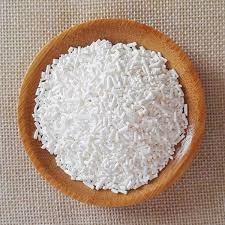
emulsifier ins 471
Understanding E471 The Emulsifier in Our Food
Emulsifiers play a critical role in the food industry, helping to improve texture, stability, and shelf life. One of the most commonly used emulsifiers is E471, which is derived from a mixture of mono- and diglycerides of fatty acids. This compound is widely utilized in various food products and has become a staple in many processed foods. In this article, we will explore the origins, applications, and safety of E471, shedding light on its significance in our daily diets.
What is E471?
E471 is a food additive classified as an emulsifier, which means it helps blend ingredients that typically do not mix well, like oil and water. It is primarily composed of fatty acids obtained from vegetable or animal sources. Because fatty acids can be derived from both types of sources, the origin of E471 can vary, and this variability raises important considerations for consumers with dietary restrictions, such as vegans or those avoiding animal products.
This emulsifier has a unique ability to enhance the texture and stability of food products. It prevents the separation of ingredients, ensuring a consistent product throughout its shelf life. E471 can be found in a variety of foods including margarine, baked goods, ice creams, and salad dressings.
Applications of E471
The versatility of E471 makes it a popular choice among food manufacturers. Here are some common applications
1. Baked Goods E471 improves the texture of bread and pastries by allowing for a finer crumb and enhanced moisture retention. This results in baked goods that are not only more palatable but also have a longer shelf life.
2. Ice Cream The emulsifying properties of E471 help create a smooth, creamy texture in ice creams by evenly distributing fat and air. This prevents the formation of ice crystals, ensuring a delightful mouthfeel.
emulsifier ins 471

3. Spreads and Sauces For products like mayonnaise and salad dressings, E471 helps maintain the creamy consistency, ensuring that oil and vinegar blend seamlessly without separating.
4. Candy In confectionery products, E471 can enhance texture and prevent clumping, leading to a more enjoyable eating experience.
5. Meat Products In processed meats, E471 can aid in the emulsion of fats, leading to products that are juicier and more flavorful.
Safety and Regulatory Status
E471 has undergone thorough safety assessments by food safety authorities. The European Food Safety Authority (EFSA) and the Food and Drug Administration (FDA) have classified E471 as safe for consumption when used within established limits. However, like many food additives, it is essential to consume products containing E471 as part of a balanced diet.
Despite its approval, some consumers express concerns about emulsifiers, linking them to potential health issues. Current scientific evidence does not support these claims, and regulatory bodies continue to monitor the use of E471 and other food additives to ensure consumer safety.
Conclusion
E471 is a remarkable emulsifier that plays an integral role in the food industry. Its ability to enhance the texture, stability, and shelf life of various food products is invaluable. While it is important for consumers to be aware of what goes into their food, E471's safety record and regulatory approval suggest it can be enjoyed in moderation as part of a varied and balanced diet. As consumers become more aware of food additives, understanding the role of compounds like E471 can empower them to make informed choices while enjoying their favorite foods.
In conclusion, E471 exemplifies the complex yet fascinating world of food science. Whether one is baking a cake, enjoying a scoop of ice cream, or dressing a salad, E471 quietly ensures a consistent and pleasant experience, illustrating the unseen ingredients that contribute to our daily meals.
-
Pure Sodium Dichloroisocyanurate Dihydrate | Powerful DisinfectantNewsAug.29,2025
-
Industrial Chemicals: Quality & Purity for Every IndustryNewsAug.28,2025
-
Nitrile Rubber Honoring Strict Production StandardsNewsAug.22,2025
-
Aspartame Ingredients Honoring Food Safety ValuesNewsAug.22,2025
-
Fertilizer for Balanced Plant NutritionNewsAug.22,2025
-
Cyanide Gold Processing with High Purity AdditivesNewsAug.22,2025
-
Formic Acid in Textile Dyeing ApplicationsNewsAug.22,2025
Hebei Tenger Chemical Technology Co., Ltd. focuses on the chemical industry and is committed to the export service of chemical raw materials.
-

view more DiethanolisopropanolamineIn the ever-growing field of chemical solutions, diethanolisopropanolamine (DEIPA) stands out as a versatile and important compound. Due to its unique chemical structure and properties, DEIPA is of interest to various industries including construction, personal care, and agriculture. -

view more TriisopropanolamineTriisopropanolamine (TIPA) alkanol amine substance, is a kind of alcohol amine compound with amino and alcohol hydroxyl, and because of its molecules contains both amino and hydroxyl. -

view more Tetramethyl Thiuram DisulfideTetramethyl thiuram disulfide, also known as TMTD, is a white to light-yellow powder with a distinct sulfur-like odor. It is soluble in organic solvents such as benzene, acetone, and ethyl acetate, making it highly versatile for use in different formulations. TMTD is known for its excellent vulcanization acceleration properties, which makes it a key ingredient in the production of rubber products. Additionally, it acts as an effective fungicide and bactericide, making it valuable in agricultural applications. Its high purity and stability ensure consistent performance, making it a preferred choice for manufacturers across various industries.





